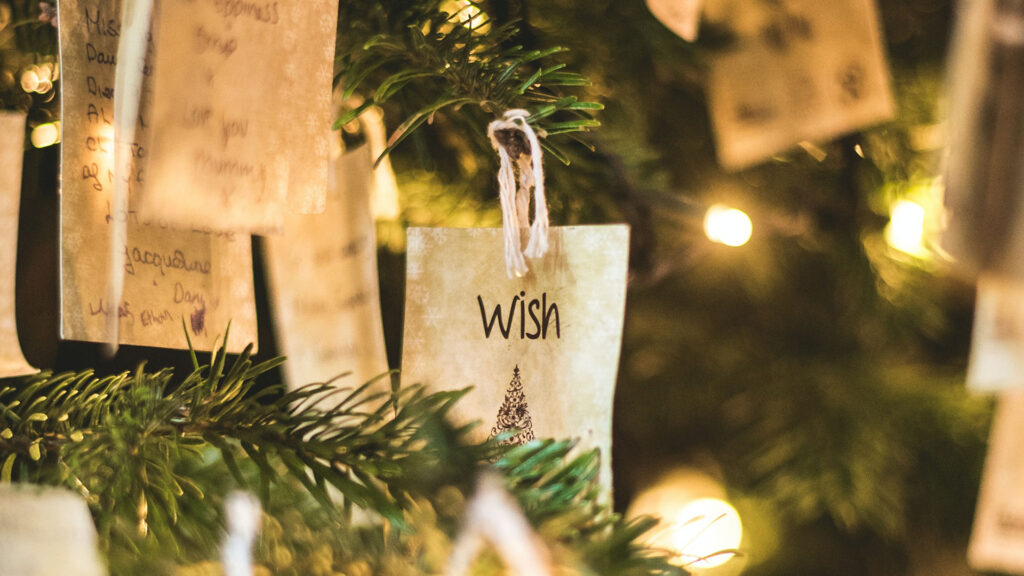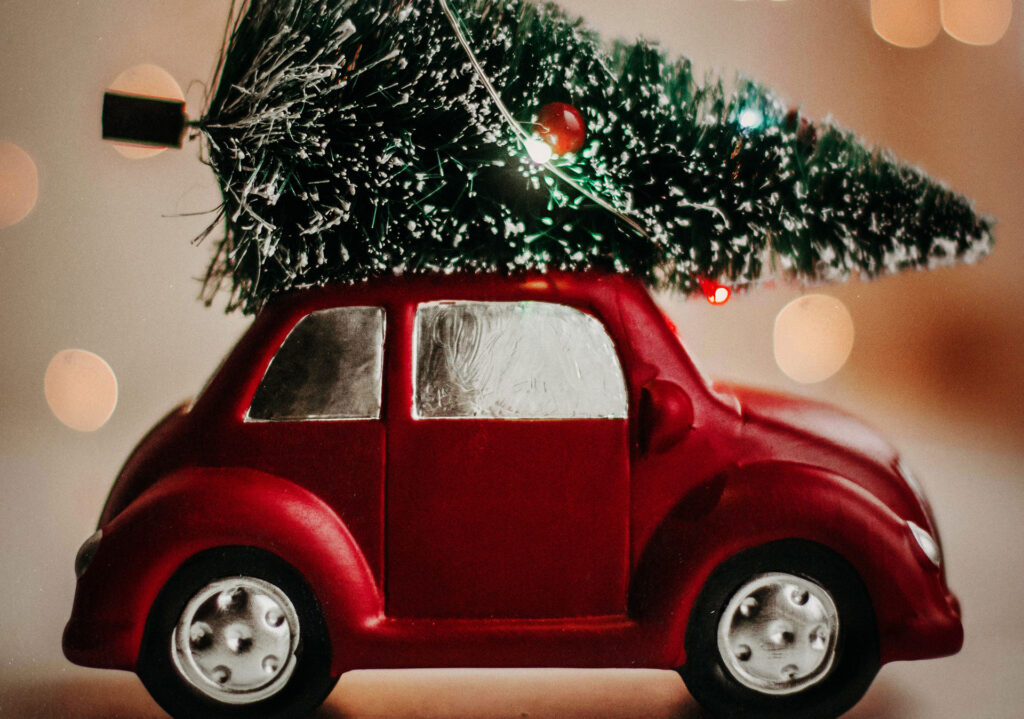Close your eyes. Imagine you are walking in a long, dark tunnel. In the distance, you see a pinprick of light. As you walk towards it, your peripheral vision sees nothing but blackness. You’re not concerned, because ahead you see a growing circle of light. You anticipate the warmth and the sunshine waiting to embrace you. You have confidence that you’ll get to the end of the tunnel. You feel safe and in control. Indeed, with each step you take, the light increases in size; you’re getting closer. You have no fear or sense of panic.
As you walk, you sweat with the effort. It seems to be taking longer than you imagined to get to your destination. You sense that?you’re not making much progress. Indeed, your legs start to ache. You’re getting tired.?
Then, all of a sudden, the light shrinks. Is it moving further away? You up the tempo, you walk faster. You’re determined to?get there. But it’s not working.
A strange feeling comes over you. Instinctively you know something’s not right. You look down at your feet. In the dim light available to you, to your horror, you see that the floor is actually a travelator, silently moving in the opposite direction from the light source. It’s working against you! No matter how hard you try to make progress, increasing your stride length, it makes no difference. The best you can do is to stay in the same spot.?
All the anticipation that you felt, thinking you would soon be out of the darkness, evaporates, as the horror of your Sisyphean task becomes clear. Your heart sinks. You become anxious. Perhaps even a little bit terrified.

BACK TO SQUARE ONE
My story is an?allegory for the seemingly never-ending Coronavirus nightmare we are living through. This time last year we were convinced we could see the light at the end of the tunnel. Vaccinations were going to deliver us from lockdown, from face-masks and from sanitising wipes. We’d be free by March; and if not March, then we’d?be enjoying our summer holidays. You were probably even making plans for some sunshine on the Costa del Sol or Greek islands?
But of course, we weren’t free by March, or April, or even by June. Yes, we had a few glimmers of hope, and some sense of normality. There was cause for optimism. But now, with Omicron, this has gone. (As an aside, doesn’t ‘Omicron’ sound like some new baddie aliens from an episode of Doctor Who?)
So we’re right back to square one. Like the travelator, it feels we’ve been going nowhere. That light is no nearer.?
Is it really two years since this whole omnishambles hit us? My heart sinks when I hear a sage epidemiologist or viral expert solemnly advise that we might be caught in this trap for another five years. Sweet Jesus, surely not? We’re homo sapiens,?we?are the wise ones. We can solve this problem. We have?solved all the other problems so far, haven’t we??
I see weariness in the faces at my daily staff Zoom calls. In the faces of our amazing Union team; who have been holding it together for two years. They’ve gone above and beyond. Delivering essential communications for the Government, Food Standards Scotland, Zero Waste Scotland, VisitScotland, and other key private and public sector clients. We’ve stood shoulder to shoulder with our clients. Fought with energy and determination. Working all hours. Our wonderful Union people have, despite the odds, helped the agency both survive and thrive. (They even helped us become Agency of the Year.) But surely there is a finite limit to their energy, commitment and passion, I wonder?
This Christmas there is no light at the end of the tunnel. This Christmas we all feel lost.

AN ILLUSION
For almost 100 years most of us in the West have lived with the feeling that we control our lives, and that we control the world around us. We exercised this control in many ways; we hopped on planes to go on holiday; we had the certainty that, with a few exceptions, if we wanted to go from A to B we could, with ease. We could go to a restaurant when we wanted, we could visit our family at Christmas if we wanted to. Yes, sometimes our lives had periods where we were out of control; a road accident, a death in the family, an unexpected illness. But most of the time everything just ‘worked’; we lived in a world with a high degree of?certainty, and we were happy. ?
But this was all just an illusion. The generations that lived before us, through the First and the Second World Wars, had no such illusions. Go back further, 200 or 300 years, and very few people were stupid enough to think that they had control over their lives. We really have no idea.
IT’S ALL ABOUT CONTROL
In psychology there is a concept called the ‘locus of control;’ it refers to the extent to which people feel that they have control over the events that influence their lives.
Some people, with an ‘internal’ locus of control, feel they control their lives, which gives them a sense of purpose, an agenda, and sense of achievement. But others, who worry and feel out of control, or feel they have no control, naturally struggle, and suffer. Their locus of control is ‘external.’
However, there are also some people where the need to control is all consuming and extends trying to control those things that are not controllable.?
Apparently there are seven things that we can’t control. We can’t control change, we can’t control the weather, we can’t control the past or the future, we can’t control other people’s minds and we can’t control other people’s happiness. Oh, and we can’t control the traffic.?
For those who try to control these things, or worry about not being able to control them, but wish that they could, there is only one outcome; anxiety, deep unhappiness, and potentially mental illness.
Matt Haig very wisely said “Don’t worry about things you can’t control.” This has been my mantra for many years. It has helped me overcome traumas and challenges. I’m convinced it’s the key to well-being and having peace and balance in my life. I try to focus only on those things that I can control, or at least influence. I try to let go of everything else. And that means not worrying about Boris or Donald or Vladimir.
“Don’t worry about things you can’t control.”?
I can assure you with absolute certainty, you cannot control Covid-19, either the Delta or the Omicron variants or any others yet to come.??You also can’t control if you will be able to go to the pub tomorrow, or the supermarket next week. These days, uncertainty is the one certainty. So we must all absolutely, categorically, definitely, learn to ‘let go’ if we want to be well and feel human.?
They were perhaps ahead of their times when in 1939, at the outset of the war, the Government?advised us to ‘Keep calm and carry on’.

MAKE A PLAN
So what do we need to do to get ourselves to the end of the tunnel; however long it is? How do we ‘let go’?
We must be positive and inventive in ensuring that we take actions to give us strength. Anxiety, frustration, fear, and stress often attacks slowly and stealthily, so that sometimes we’re not even aware that we have a problem until it’s too late. And in this current environment, we’re more vulnerable than ever. We need to be much more proactive to develop resilience and strengthen our mental wellbeing.
There are lots of practical steps we can take to get us through this.?
The first thing is to be clear about what we do control and focus on this. Focus on the choices we can make, the actions we can undertake.??
We can also influence change. We should focus on the things that we may not be able to control, but that we may be able to influence. We should use our powers of persuasion, communication, and empathy to help us get the outcomes we want.?
Thirdly, we must not catastrophise. We must face our fears. Interrogate those fears, so that they become smaller and more manageable. Ask the question what’s the?worst?that can happen? Things are rarely as bad after we’ve done this.
We also have to become problem solvers, so we advance forward with purpose. The alternative to being a problem solver is being a ‘ruminator.’ Chewing on a challenge without purpose, going round in circles. The temptation is great; but our minds need to switch into problem-solving?mode.
We need to make a plan to manage our mood and stress levels. We need to stop talking about taking up yoga, or?going for a run, or a walk in the country. Stop dreaming about taking up painting or writing poetry. We must, ‘Just Do It.’ We must understand the imperative to care for our mind, as much as our body. (And of course the connection between mind and body.)
Finally, we need to develop healthy affirmations. To accept and understand that we have two options. We can either control something and make change happen; or alternatively that we have no control and so we need to let go, and tell ourselves ‘I can handle it.’

BE HAPPY
At the end of 2020, in my Thunk year-end round up, I wrote of overcoming challenges and how there were so many positives to be taken out of the year. I spoke of admiration as to how we’d adapted and survived.
I quoted Seneca, “We become wiser by adversity; prosperity destroys our appreciation of the right.”?
I was optimistic, as many were at the time, that the end was near. And how we’d emerge stronger as a result of the challenges we’d faced.?
As we end 2021, I realise that this is an even bigger challenge than any of us anticipated. And that the mental health challenge is perhaps?the?story of the year. Hence we need to draw on all the tools at our disposal. I hope my thoughts on ‘letting go’ to move forward are helpful.
Bobby McFerrin sang “Don’t worry, be happy” in 1988. (The first cappella song to reach number-one in the US charts.) It’s an apt sentiment for the times.
So to all our clients, staff, suppliers and friends, thank you for your hard work, support and friendship in 2021. We love you all. And from everyone at The Union, we say “Don’t worry, be happy this Christmas.”
Ian McAteer, Chairman
